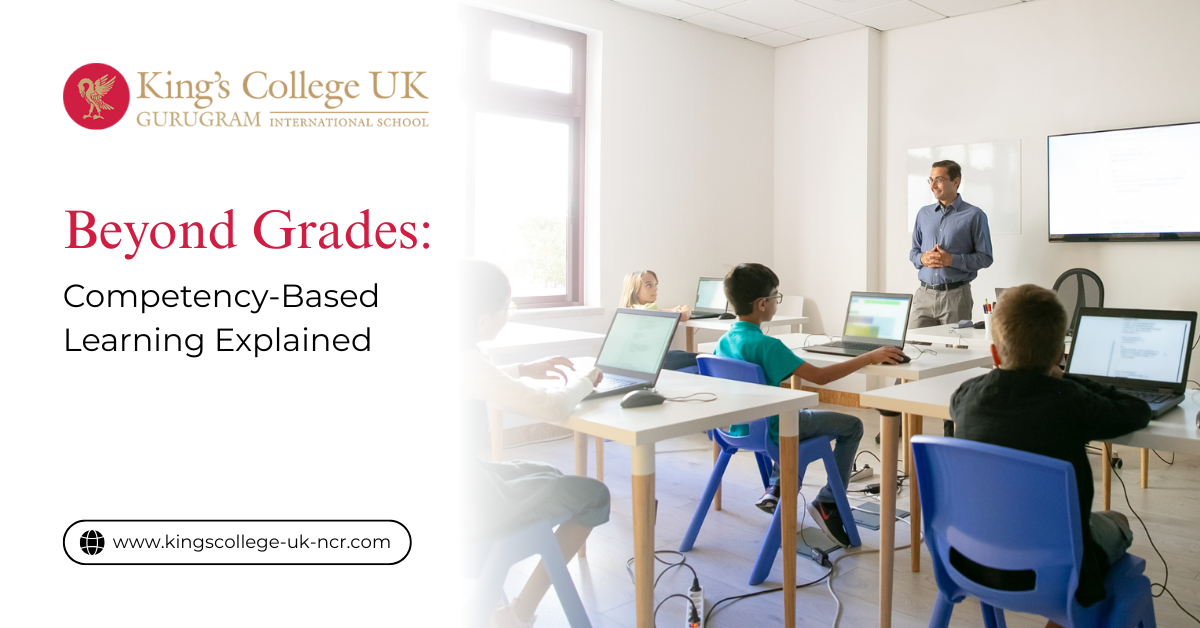
For generations, education has been closely tied to the idea of grades. Pupils memorise facts, take exams, and receive a letter or number that supposedly reflects their academic ability. While this system has worked for some, it often fails to capture the true depth of a learner’s understanding, their skills, or their potential.
In recent years, however, a powerful shift has been gaining momentum worldwide: competency-based learning. This approach moves beyond marks and percentages, focusing instead on the skills, knowledge, and behaviours students actually master. It’s less about racing to the end of a syllabus and more about ensuring each pupil has genuinely understood and can apply what they’ve learned.
What Is Competency-Based Learning?
Competency-based learning (CBL) is an educational approach that places emphasis on mastery rather than time spent in the classroom. Instead of progressing simply because the school year has ended, students move forward when they’ve demonstrated competence in specific skills or areas of knowledge.
For example, a child studying mathematics wouldn’t be pushed into advanced algebra if they’re still struggling with foundational concepts. Conversely, a student excelling in literature might be given the opportunity to explore complex texts earlier than their peers. This personalised model allows each learner to advance at their own pace, ensuring they have a solid understanding before moving on.
This approach is rooted in the belief that learning should be meaningful. Instead of asking, “Did you pass the test?” educators ask, “Can you apply this skill confidently and consistently?”
Why This Approach Matters
Traditional grading systems often reduce a child’s abilities to a single mark, which doesn’t reflect the breadth of their capabilities. Competency-based learning changes the narrative in several key ways:
- Depth Over Speed: It prioritises mastery, ensuring students don’t carry knowledge gaps forward.
- Individual Progress: Every student has a unique learning journey, which this model respects.
- Practical Skills: It develops problem-solving, critical thinking, and collaboration skills essential for future success.
- Reduced Pressure: Learners are evaluated on competence, not their ability to perform under time-limited testing conditions.
By focusing on what students can do, rather than what they can memorise, schools can nurture a more confident, capable generation of learners.
Competency-Based Learning in Practice
When applied effectively, competency-based learning transforms the entire educational experience. Classrooms become more collaborative, teachers act as facilitators rather than mere lecturers, and assessments are designed to evaluate real skills.
- Personalised Pathways: Each pupil’s strengths, interests, and learning gaps are identified early. Learning objectives are then tailored to these individual profiles.
- Flexible Pacing: Students who need more time receive it without stigma, and those ready for more advanced work are encouraged to go further.
- Performance-Based Assessment: Rather than relying solely on exams, assessments might include presentations, projects, portfolios, or practical demonstrations.
- Clear Learning Outcomes: Pupils and parents understand exactly what competencies are expected and what mastery looks like.
This structure also encourages pupils to take ownership of their learning, building self-awareness and resilience.
Benefits for Students, Teachers, and Parents
For Students
- Develops independent, self-motivated learners.
- Provides a more supportive environment for those who learn at different speeds.
- Encourages real-world application of knowledge.
For Teachers
- Enables a more accurate understanding of each student’s progress.
- Creates room for innovative teaching strategies.
- Reduces the overemphasis on high-stakes testing.
For Parents
- Offers clearer insights into their child’s actual capabilities and progress.
- Reassures them that learning gaps are being addressed, not overlooked.
- Strengthens trust in the school’s ability to provide meaningful education.
Global Education and the Competency Shift
Internationally, competency-based learning is seen as a future-ready model. It aligns well with modern workplace demands where employers value critical thinking, adaptability, communication, and creativity over rote memorisation.
Many international schools in India are adopting this approach to keep pace with global standards. They recognise that preparing students for the world beyond exams means equipping them with competencies that last a lifetime.
One example of this shift can be seen at King’s College in Gurugram, where academic excellence goes hand-in-hand with developing practical skills, emotional intelligence, and personal growth. It’s a modern take on education that prepares students not just for university, but for life.
Choosing the Right School
For parents considering a school that embraces competency-based learning, it’s essential to look for institutions that value skills and understanding over rote testing. A quick search for Top international schools near me can reveal options that prioritise innovative teaching methods and global standards.
It’s also wise to explore the best schools in delhi and ncr, as many have begun integrating this approach into their curriculum to provide a richer and more holistic educational experience. Families seeking a nurturing and forward-thinking learning environment may also find strong options among international schools in delhi gurgaon, where this educational model is steadily gaining traction.
The growing number of international schools in gurgaon adopting competency-based frameworks signals a positive shift in how education is perceived and delivered.
Beyond the Report Card
Grades will likely remain part of education for the foreseeable future, but their role is evolving. As more schools embrace competency-based learning, the emphasis will shift from what a student can memorise for an exam to what they can genuinely do and understand.
This is a transformative moment for education, a move towards classrooms that recognise diverse learners, encourage curiosity, and cultivate skills that extend well beyond the school gates.
For parents and educators alike, embracing this shift means investing in a future where students thrive not just academically, but as capable, confident individuals ready to contribute meaningfully to society.

